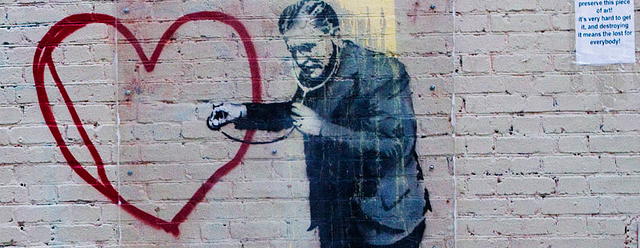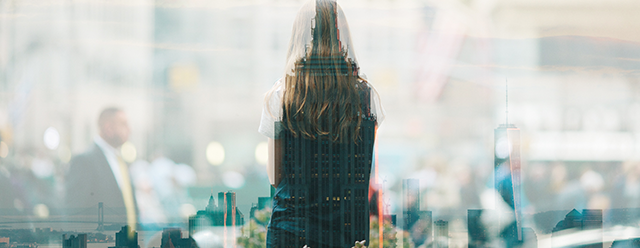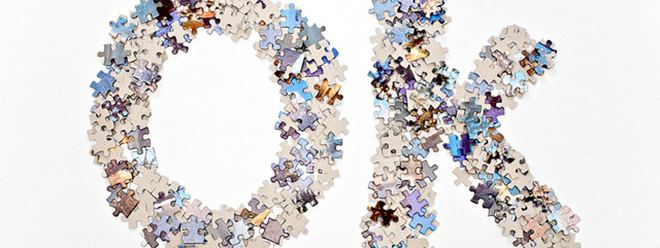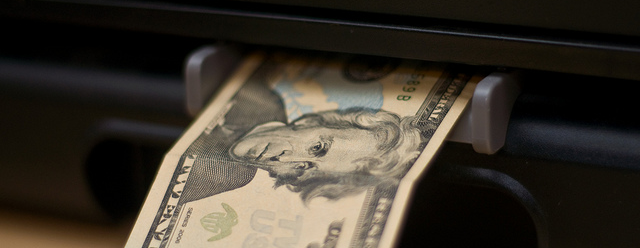
by Tara Joyce | Aug 2, 2015 | Pay What It's Worth Pricing, Personal Branding, Self/Business Growth

“Thoughts become things,” Mike Dooley says. You don’t get what you deserve, you get what you think you deserve.
Life provides your perceived worth, not your actual worth. Only when you connect with your intrinsic goodness — your courage and your kindness — do you allow, and feel you deserve, all of life’s blessings. Only then, can you truly get what you deserve. For only then, do you trust in your unconditional worth.
Unconditional worth belongs to you. It’s always been yours. It’s inherently yours. Your self-worth can not be earned. It can not be measured. It is simply yours to know, and to grow with.
Yet what you think your worth matters just as much as the truth of your infinite value. Feelings need to find balance with perceptions. To truly know your worth and receive it, you need to find alignment with your perceptions and expressions of worth, and your actual worth.
Your thoughts are becoming things, and they’re showing you the truth of your feelings. Life’s giving you what you think you deserve. Are you happy with what you’re creating? Whatever your answer, your worth is yours to grow into, and yours to create the life you truly deserve.
photo credit: eva blue

by Tara Joyce | Jul 19, 2015 | Cultural Creativity, Self/Business Growth

In our Modern culture, we are encouraged to be unbalanced in our doing, in our esteem. We’re taught to believe we have the right, and the entitlement, to do and have whatever we want. Yet we lack the love to know what we truly need, and how to get it. And so we find ourselves exerting our power, our esteem towards our Self, onto others, in hopes that we will get what we want, without having to do the work to know what we need.
When did our wants become so important? Perhaps it was when we, as a collective, fulfilled our most basic survival needs. With our drive to survive less pressing, with our most basic needs met, we’ve gotten a bit lost in our purpose. With our physical needs met, we think we’ve been granted free reign to focus on our wants. The truth is though, we have far more needs to fulfill beyond the physical ones. Our work is not over, in fact, it has only begun.
Each of us has been honoured with this lifetime, this unique culture, where we have the abundance to explore beyond our most basic needs and to fulfill ourselves on a deeper level. The wealth of our times affords us this ability. Collectively, we’ve reached this place of abundance and opportunity together. It seems a waste to simply focus on our wants, when we’re being offered the opportunity to explore the richness of our deeper needs. This abundance is a gift, giving us the ability to reach further and farther. Its purpose is to expand us, and to support us in expanding ourselves. We need to use it consciously. For there is not much value in getting what we want when we don’t know what we need.
photo credit: Thomas Brault

by Tara Joyce | Feb 9, 2015 | Cultural Creativity, Self/Business Growth

We’ve created a culture of leaving people feeling as though they’re missing something. We’ve created a collective belief that, as a community and as an individual, we are not whole, nor okay.
We’ve created a commercial system that grows fat and comfortable on promoting these feelings of lack and fragmentation. We’ve bought the idea that we can consume something or someone that can leave us feeling more whole.
In the midst of our chaos of un-wholeness, we’ve created deep poverty. More than lacking material resources, deep poverty lives in our feelings and thoughts of lack — lack of ability, of confidence, and of agency — and our disbelief that we can make a plan and change our lives. This mindset can affect the materially poor and rich alike, and it’s from this place that we’ve created the material poverty of our world, and our cultural messages of lack.
Business and culture, excitingly, just as they helped shape these problems, are also powerful spaces to transform deep poverty. There is enormous potential within these spaces to create shifts away from these cultural and economic messages of lack and fear. In this moment, there is so much space and need for actions of abundance; we are desperately in need of people and businesses who actively invest in their own inherent wholeness, and ours. These positive entities are our tools for cultural and economic transformation, and their messages of abundance and of truth are integral for us to heal.
I invite you to take a moment now and feel that place inside you that believes in your own un-wholeness. Sense the amazing transformational power that pain contains… Trust that in working to heal your own beliefs of un-wholeness, you have the power to transform your whole world.
photo credit: Horia Varlan

by Tara Joyce | Jul 30, 2014 | Cultural Creativity, Pay What It's Worth Pricing

Economic theory is based on the assumption of scarcity – why is that? Aren’t we, collectively, always creating and printing more money? It’s not a limited resource, so why do we use it like it is?
We can’t run out of it. It’s not clean water. Or pandas. We make it, and we can always make more of it. So why should we believe and act like it’s going to run out?
I make a conscious choice to live in a world of abundance, not scarcity. And that includes money.
In Paying What It’s Worth for the value you receive, you shift the traditional supply curve (based on scarcity) to one based on abundance. In not setting prices, you remove the false ceiling that’s been placed on your value, maximizing your return potential, and removing any self-imposed limits to it.
So why not forget that economy of scarcity story? Its plot is full of holes.
photo credit: Paul Nicholson








